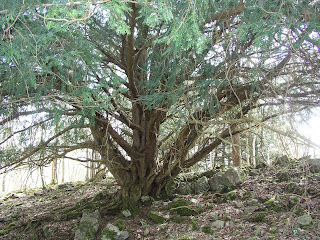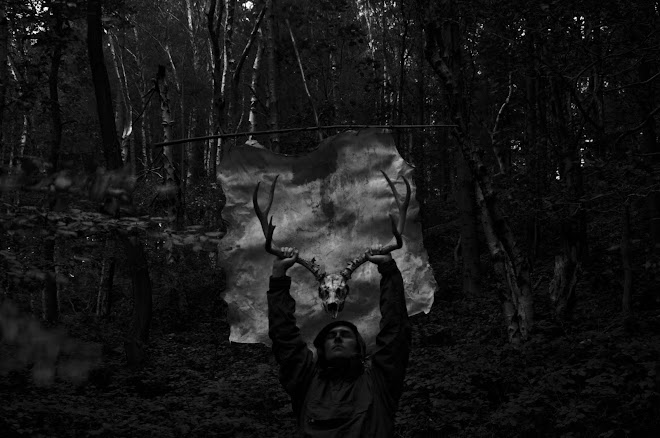




I recently visited the ancient woodland that runs from Hagg Wood to Yewbarrow, on the southern fringe of the Cumbrian hills. Massive, old and spectral yews cling to crumbling limestone cliffs and erupt from the shallow soil like a message of blackness. Deadly in their solitude. Sylvia Plath's poem captures the selenic mysteries of these ancient trees and this hidden stretch of woodland.
This is the light of the mind, cold and planetary
The trees of the mind are black. The light is blue.
The grasses unload their griefs on my feet as if I were God
Prickling my ankles and murmuring of their humility
Fumy, spiritous mists inhabit this place.
Separated from my house by a row of headstones.
I simply cannot see where there is to get to.
The moon is no door. It is a face in its own right,
White as a knuckle and terribly upset.
It drags the sea after it like a dark crime; it is quiet
With the O-gape of complete despair. I live here.
Twice on Sunday, the bells startle the sky ----
Eight great tongues affirming the Resurrection
At the end, they soberly bong out their names.
The yew tree points up, it has a Gothic shape.
The eyes lift after it and find the moon.
The moon is my mother. She is not sweet like Mary.
Her blue garments unloose small bats and owls.
How I would like to believe in tenderness ----
The face of the effigy, gentled by candles,
Bending, on me in particular, its mild eyes.
I have fallen a long way. Clouds are flowering
Blue and mystical over the face of the stars
Inside the church, the saints will all be blue,
Floating on their delicate feet over the cold pews,
Their hands and faces stiff with holiness.
The moon sees nothing of this. She is bald and wild.
And the message of the yew tree is blackness -- blackness and silence




 I recently visited the ancient woodland that runs from Hagg Wood to Yewbarrow, on the southern fringe of the Cumbrian hills. Massive, old and spectral yews cling to crumbling limestone cliffs and erupt from the shallow soil like a message of blackness. Deadly in their solitude. Sylvia Plath's poem captures the selenic mysteries of these ancient trees and this hidden stretch of woodland.
I recently visited the ancient woodland that runs from Hagg Wood to Yewbarrow, on the southern fringe of the Cumbrian hills. Massive, old and spectral yews cling to crumbling limestone cliffs and erupt from the shallow soil like a message of blackness. Deadly in their solitude. Sylvia Plath's poem captures the selenic mysteries of these ancient trees and this hidden stretch of woodland.


No comments:
Post a Comment